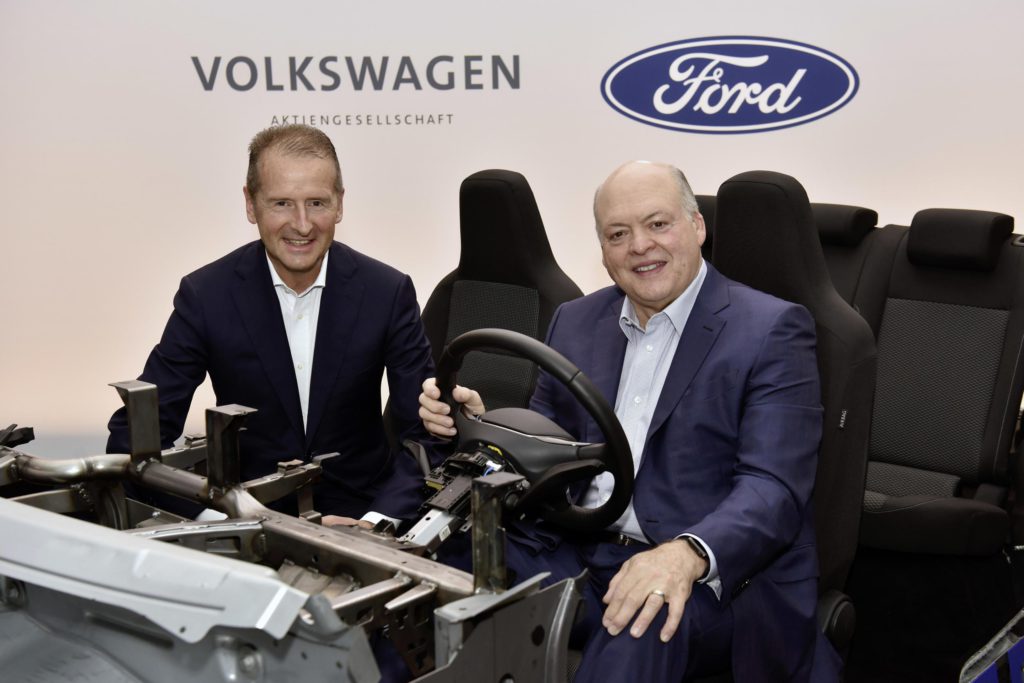Year in review 2019: Collaboration
03 January 2020

3 January 2020
If there is one word that resonated throughout 2019, it was collaboration. With the automotive industry facing several challenges, both financial and technological, many decided it was time to bury old rivalries and instead forge new partnerships to advance their developments and reduce costs.
German powerhouse
The first indicator that 2019 was to be a year of partnerships came in February, with the news that Daimler was to team up with BMW in developing mobility services. The news had been rumoured for some time, but February’s news confirmed the merger of Drive Now and car2go, into one entity overseeing five mobility businesses including car-sharing, ride-hailing and parking.
′By creating an intelligent network of joint ventures, we will be able to shape current and future urban mobility and draw maximum benefit from the opportunities opened up by digitalisation, shared services and the increasing mobility needs of our customers,’ said former Daimler chairman Dieter Zetsche at the time of the launch.
However, later in the year, the carmakers scaled back their plans to make the new entity more profitable. Services will cease in London, Brussels and Florence from the end of February, with a pull-out from the US completed at the same time. The carmakers blame low adoption rates for the reduction in its European operations.
The two companies have also signed a long-term strategic cooperation, which will focus on joint development of next-generation technologies for driver assistance systems, automated driving on highways and automated parking (all to SAE Level 4 Automation). This allows them to share costs and develop technology quicker, safeguarding them against technology companies trying to enter the market. It was suggested later in the year that Audi would also be joining this collaboration.
Sharing expertise
At the Detroit Motor Show in January, Ford and Volkswagen Group (VW) announced plans to work together in the commercial vehicle sector. While this was exciting news at the time, there was also the rumour that the development could lead to more.
Rumours became fact in July, with Ford gaining access to VW’s MEB platform for electric vehicles (EVs), giving the US carmaker a boost in a market where it is currently lagging behind rivals.
Conversely, VW will invest $2.6 billion (€2.3 billion) for an equal share in Ford’s autonomous business Argo AI and will develop autonomous platforms and technology alongside the company to use in its own future vehicles.
‘Ford will become the first additional automaker to use Volkswagen’s dedicated electric vehicle architecture and Modular Electric Toolkit – or MEB – to deliver a high-volume zero-emission vehicle in Europe starting in 2023. Ford expects to deliver more than 600,000 European vehicles using the MEB architecture over six years, with a second all-new Ford model for European customers under discussion,’ according to statements.
Electric strategies
BMW and Jaguar Land Rover (JLR) are joining forces to develop electric drive units. The collaboration begins this year and will focus on developing the ′Gen 5′ electric drive unit, designed to be the propulsion system used by JLR in all future launches. The two companies are also working together on internal combustion engines.
The tie-up could also allow JLR to use BMW platforms as it looks to expand its SUV line-up. A pair of smaller Jaguar models, already in the early stages of development and scheduled for launch in the middle of the next decade, could be based on the German carmakers’ FAAR platform for front-wheel-drive models.
Toyota was also busy, announcing deals with Suzuki and Subaru in 2019. Toyota and Subaru will jointly develop a platform for battery electric vehicles (BEVs). Models planned on the platform include midsize and large passenger cars and a compact SUV. Meanwhile, with Suzuki, the two manufacturers intend to grow in new fields, such as collaboration in production and the widespread popularisation of electrified vehicles.
The collaboration will see Toyota supply its hybrid system to Suzuki, while the smaller Japanese manufacturer will also use Toyota platforms to build two new electrified vehicles. Suzuki will share its compact platform, allowing the larger business to build two small cars for the Indian market.
Additionally, Toyota will adopt newly developed Suzuki engines for compact vehicles, which will be supported by the carmaker and its technology partner Denso and will be built at Toyota facilities in Poland.
Italian courtship
Fiat Chrysler Automobiles (FCA) was in demand throughout the year. Alongside announcing its own deal with Tesla, which will see the Italian carmaker buy emission credits from the EV experts, it was rumoured earlier in the year that PSA Group was looking to buy the company.
These plans seemed blown away a few months later, with FCA approaching Renault, which was having a turbulent time in its partnership with Nissan, looking for a ′friendly merger’ between the two businesses. Talks eventually collapsed, as despite pledging to have the company’s headquarters in France and giving the French Government a seat on the board, FCA could not see any satisfactory developments in the situation.
Nissan was reported to want to use the situation to its advantage, offering its approval to resume talks in exchange for a fairer balance of shareholding in the Renault-Nissan-Mitsubishi Alliance. Nissan currently holds only a 15% non-voting stake in Renault, while the French carmaker has a 43.4% shareholding in the Japanese company.
This bargaining chip was extinguished, however, with the news that PSA Group had begun talks with FCA over a merger. The two companies announced a binding agreement, subject to authority clearance, in a move that would create the world’s fourth-largest carmaker and a true rival for VW Group in Europe. This deal could be completed in 18 months.